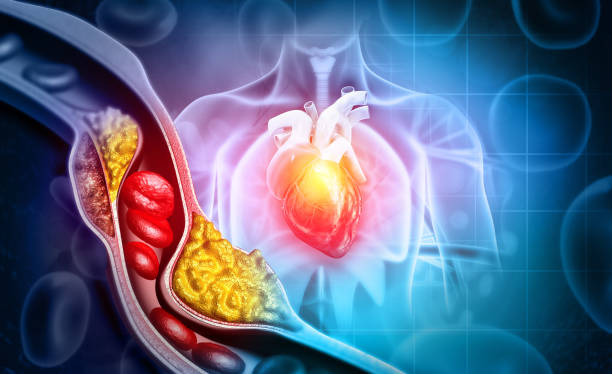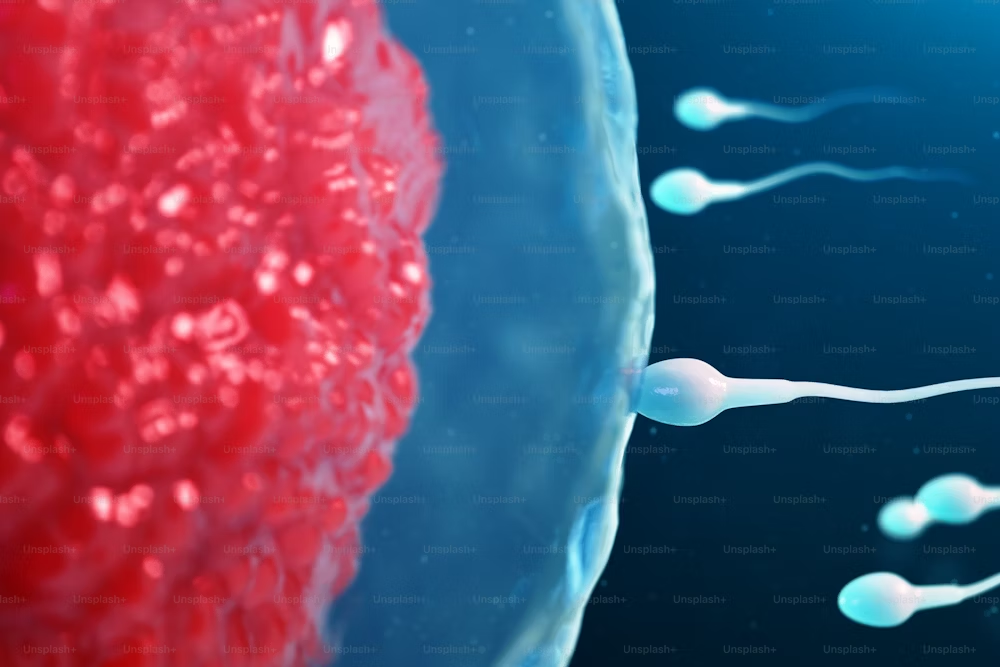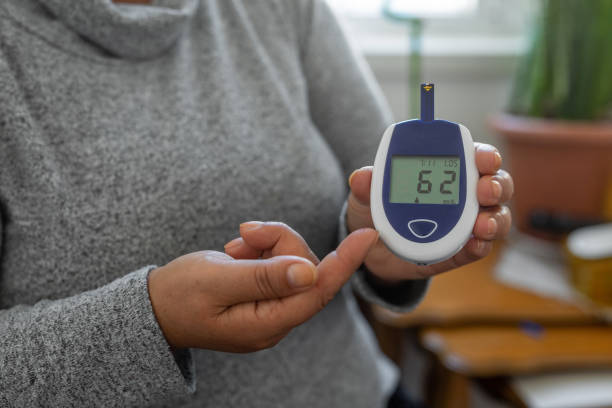High Cholesterol, a lipid substance present in your bloodstream, is essential for building healthy cells. However, elevated cholesterol levels can escalate the risk of heart disease.
Excessive cholesterol can lead to the accumulation of fatty deposits in your blood vessels. Over time, these deposits can obstruct blood flow through your arteries. In some cases, these deposits may rupture, forming clots that trigger heart attacks or strokes.
While genetics can predispose individuals to high cholesterol, it is predominantly influenced by unhealthy lifestyle choices, making it preventable and manageable. Adopting a nutritious diet, engaging in regular physical activity, and sometimes using medication can effectively lower high cholesterol levels.
Symptoms of High Cholesterol
High cholesterol itself typically doesn’t cause noticeable symptoms, but it significantly increases the risk of several conditions that do have symptoms, such as:
Angina: Chest pain or discomfort that occurs when the heart muscle doesn’t receive enough oxygen-rich blood. This is often a symptom of coronary artery disease.
High blood pressure (hypertension): Elevated blood pressure can lead to symptoms like headaches, dizziness, or nosebleeds.
Stroke: A sudden interruption of blood flow to the brain, resulting in symptoms such as sudden numbness or weakness in the face, arm, or leg, especially on one side of the body, confusion, trouble speaking or understanding speech, and difficulty seeing in one or both eyes.
Other circulatory ailments: High cholesterol can contribute to peripheral artery disease (PAD), which can cause symptoms such as leg pain when walking (claudication) or coldness in the lower leg or foot.
In addition, there are some visible signs and associated conditions that may indicate elevated cholesterol levels:
Xanthomas: Soft, yellowish growths or lesions on the skin, particularly around the eyes, elbows, knees, or hands. These can suggest high cholesterol levels.
Obesity and diabetes: Many individuals who are obese or have diabetes also have high cholesterol levels, as these conditions often coexist and contribute to cardiovascular risk.
Impotence (erectile dysfunction): In men, arteries affected by high cholesterol can impede blood flow to the penis, leading to difficulties in achieving or maintaining an erection.
Causes of high cholesterol
1. Lifestyle
Consuming excessive saturated fat: This hinders the liver’s capacity to eliminate cholesterol, causing it to accumulate in the bloodstream.
Leading a sedentary lifestyle: Physical inactivity lowers ‘good’ cholesterol levels and increases ‘bad’ cholesterol levels.
Smoking: This habit not only raises cholesterol levels but also promotes the buildup of tar in arteries, facilitating cholesterol adherence to artery walls.
2. Genetic
Your genetic makeup, inherited from your parents, determines the features and characteristics that define you. These traits are encoded in your genes, which carry the instructions for various aspects of your physical and biological makeup.
3. Well-being
Kidney disease: Impaired kidney function alters cholesterol metabolism, potentially leading to elevated cholesterol levels.
Liver disease: The liver plays a crucial role in both producing and clearing cholesterol from the body. Liver dysfunction can hinder these processes, increasing the risk of high cholesterol.
Excess weight, particularly around the abdomen: Carrying extra weight, especially in the midsection, can contribute to higher cholesterol levels.
Type 2 diabetes: Individuals with type 2 diabetes are more susceptible to elevated cholesterol levels.
Hypothyroidism: Insufficient production of thyroid hormone can affect cholesterol metabolism.
Growth hormone deficiency: Inadequate production of growth hormone may also impact cholesterol levels.
Types of High Cholesterol
There are 2 Types of High cholesterol
High-density lipoproteins (HDL), known as ‘good’ cholesterol, transport excess cholesterol from your bloodstream back to the liver for removal, thereby reducing the risk of heart disease.
Non-high-density lipoproteins (non-HDL), often referred to as ‘bad’ cholesterol, contribute to the buildup of fatty deposits in blood vessel walls, which can lead to narrowed arteries and increase the risk of heart attacks or strokes. ‘LDL’ cholesterol was previously used as the primary indicator of harmful cholesterol types, though we now recognize other forms of non-HDL cholesterol also impact health.
Triglycerides, another type of fat in the blood, can contribute to artery narrowing. High levels of triglycerides can result from factors like excess weight, a diet rich in fats and sugars, or excessive alcohol consumption. If your lipid profile test shows elevated triglyceride levels, your doctor can provide guidance on what this means for your health.
It’s possible to have normal HDL and non-HDL high cholesterol levels yet still have elevated triglycerides. If you find yourself in this situation, discussing it with your GP can help clarify its implications for your health.
Complication
Chest pain (Angina): When the coronary arteries that supply blood to the heart are affected by plaques, it can lead to chest pain and other symptoms of coronary artery disease.
Heart attack: If a plaque ruptures or a blood clot forms at the site of a plaque, it can block blood flow to the heart muscle. This can cause a heart attack, where the affected part of the heart muscle can be damaged or even die due to lack of blood flow.
Stroke: Similar to a heart attack, a stroke occurs when a blood clot blocks blood flow to a part of the brain. This can lead to permanent brain damage or even death, depending on the severity and location of the blockage.
Prevention
Exercise: Increasing physical activity helps maintain a healthy weight, improves cardiovascular fitness, and raises HDL (“good”) cholesterol levels.
Healthy eating: Adopting a diet low in saturated fats, trans fats, and cholesterol, while emphasizing fruits, vegetables, whole grains, and lean proteins, can help manage cholesterol levels and promote heart health.
Medications: In some cases, medications such as statins may be prescribed to lower cholesterol levels and reduce the risk of cardiovascular events.
Smoking cessation: Quitting smoking reduces the risk of plaque buildup in arteries and lowers the chance of heart disease.
Managing other health conditions: Controlling conditions like diabetes, high blood pressure, and obesity can also help prevent heart disease.
-
Eat a low-salt diet: Emphasize foods rich in fruits, vegetables, and whole grains. These foods are naturally low in sodium and provide essential nutrients and fiber.
Manage stress: Chronic stress can contribute to heart disease. Practice relaxation techniques such as deep breathing, meditation, or yoga. Engaging in hobbies and spending time with loved ones can also help reduce stress levels.
-
Drink alcohol in moderation: If you choose to drink alcohol, do so in moderation. For women, this typically means up to one drink per day; for men, up to two drinks per day.
-
Engage in regular physical activity: Aim for at least 30 minutes of moderate-intensity exercise on most days of the week. This helps strengthen the heart, improve circulation, and maintain overall fitness.
-
Achieve and maintain a healthy weight: Losing excess weight, particularly around the abdomen, can lower cholesterol levels, reduce blood pressure, and improve heart health.
-
Limit animal fats and use good fats in moderation: Reduce consumption of saturated fats found in red meat, full-fat dairy products, and processed foods. Instead, choose healthier fats such as those from olive oil, avocados, and nuts




